Colds & flu: What helps. What’s a waste of money.

Piman Khrutmuang - stock.adobe.com.
“There’s still no cure for the common cold or flu,” says Bruce Barrett, professor of family medicine and community health at the University of Wisconsin. Here’s what will—or won’t—curb your risk or your symptoms.
"The common cold and flu are upper respiratory tract infections caused by many viruses,” says Aric Prather, associate professor of psychiatry at the University of California, San Francisco.
Cold and flu viruses grow in the nose and throat. They’re spread when someone sneezes or coughs on or near you or you touch a contaminated surface and then touch your eyes, nose, or mouth.
It’s your immune system’s response to the virus that makes you miserable.
“We get mucus production, coughs, and sneezing, which are all part of the process of trying to clear the virus from the body as your immune system fights it off,” Prather explains.
How do you know if what you have is a cold or the flu? “If you have a fever and aches, if the symptoms come on rapidly, and if it’s flu season, then the likelihood is high that it’s influenza,” says the University of Wisconsin’s Bruce Barrett.
Prevention 101
“My number one tip for avoiding colds and flu is to avoid sick people, if you can,” says Prather. What else helps?
■ Wash those hands. “Hand-washing is like a ‘do-it-yourself’ vaccine,” says the Centers for Disease Control and Prevention (CDC). Just follow five simple steps: wet, lather, scrub (for about 20 seconds), rinse, and dry.
Simple? Yes. But odds are, you’re not scrubbing for 20 seconds (with the tap off). That’s how long it takes to sing “Happy Birthday” twice.
And skip the antibacterial soaps. The Food and Drug Administration says that they’re no more effective than regular soap and could lead to resistant bacteria.
No soap and water? Use a hand sanitizer that’s at least 60 percent alcohol. (The label will say.)
■ Get a flu shot. The CDC says that nearly everyone six months and older should get one.
“The vaccine may reduce your chances of getting the flu by up to 60 percent,” says Barrett. “And by getting a shot, you also contribute to the public good.”
Why? “If enough of the population gets vaccinated, the flu is less likely to get to nursing homes, young kids, pregnant women, or people taking immunosuppressants,” Barrett notes. Those are the groups that are most likely to suffer serious complications—like pneumonia or bronchitis—or to die from the flu.
Try to get your shot by the end of October, says the CDC. If you can’t, don’t panic. Flu season usually lasts until early spring, so even February isn’t too late.
And get the shot yearly. “Every year, we have different strains,” Barrett explains. “The flu shot you got last year may be partially effective against some of this year’s strains, but these viruses evolve quickly.”
Some people briefly get a low-grade fever or achy muscles as their immune system reacts to the vaccine. But “you can’t catch influenza from the flu shot because it doesn’t have live influenza in it,” Barrett points out.
And if you’re over 65, ask your doctor or pharmacist about the high-dose vaccine. “As we age, our immune system becomes less responsive to shots,” Barrett explains. The high-dose vaccine can help counter those changes.
For more on the flu, check out cdc.gov/flu.
Stress, Exercise, Sleep
When people are exposed to a cold or flu virus, only some will get infected—that is, the virus will start to multiply in their nose and throat. And only some of them will get symptoms.
“When we put known quantities of a cold virus in people’s noses, 75 percent of them became infected, but only 30 percent actually got sick,” notes Prather.1 “We’re trying to determine what explains who gets infected and who develops symptoms.”
Some clues:
■ Stress. “In a series of experiments, people reported their stress levels first and were then exposed to a bug,” Barrett explains.
“People who rated themselves as more stressed were more likely to have the bug take up shop and replicate and to have worse cold symptoms.” 2 Ditto for those who were unemployed or having marital problems, or who had other stressful experiences.3
■ Exercise. “The data show that people who exercise regularly get fewer respiratory infections,” says Barrett.4
He randomly assigned roughly 560 people to a control group, to do daily moderate-intensity exercise, or to reduce stress via meditation for four to eight months. Compared to the control group, the meditators reported 20 percent fewer respiratory infections, and the exercisers’ illnesses were 23 percent shorter (the equivalent of being sick for 1½ fewer days during a weeklong illness). 5,6 (Granted, the study wasn’t “blinded,” so those groups could have expected to avoid colds or get well faster.)
“I can’t say that we’ve proven beyond a shadow of a doubt that these things work,” says Barrett. “But the body of evidence is such that we’re pretty sure they do. Exactly how much, we don’t know. Who will benefit the most? We don’t know. But there’s no downside to exercising or practicing stress reduction.”
■ Sleep. In one study, Prather monitored the sleep patterns of 164 people for a week.1 “Then we shot the cold virus into their nose, quarantined them in a hotel for five days, and tracked who got sick,” he says.
“The odds of getting sick were four times higher in people who slept six hours or less a night than in people who slept seven hours or more. And that was after accounting for factors that are linked with getting a cold, like age, stress, and exercise.”
“These results lend support to the idea that sleep is critical to health,” adds Prather. “People need to make sleep a priority, not just something you do after everything else gets done.”
If You Get Sick
Your throat is sore, your nose is stuffed, you’re achy. Now what?
“First, reduce the harm to other people,” says Barrett. “Wash your hands regularly, maybe wear a mask, and don’t go to work while you’re sick.”
Since colds and the flu are caused by viruses, antibiotics (which kill bacteria) won’t help. (And taking them could up the odds that bacteria will become resistant to the drugs when we need them.)
If you have the flu and you’re over 65 or have a higher risk of complications, your doctor may prescribe an antiviral drug. But you have to start taking them within the first two days of feeling sick. And they’ll only lessen the duration of the flu by about a day.
Otherwise, all you can do is treat the symptoms.
■ Rest. When you feel like lying on the couch, do it. The urge to rest is brought on by inflammatory cytokines—proteins that the immune system makes when it’s fighting off a bug.
“We think that the cytokines act on the brain to make you feel tired so that your immune system has more energy to fight off the virus,” says Prather.
■ Stay hydrated. Fluids are thought to help loosen mucus and replace the water lost if a fever makes you sweat.
■ OTC drugs. “I tend to dissuade people from using over-the-counter combination cold formulas that contain some mixture of antihistamines, cough suppressants, decongestants, and pain relievers,” says Barrett.
Why?
Because you may not need them all, and they may have side effects. For example, antihistamines and cough suppressants can cause dizziness and drowsiness, and decongestants can cause insomnia.
■ Fever. “You won’t shorten the illness by lowering your fever,” says Barrett.
If you want to treat a fever, aches, or a headache, he suggests acetaminophen (Tylenol). “It doesn’t cause stomach ulcers or kidney problems like ibuprofen, naproxen, and aspirin can.” But don’t take more than 3,000 mg a day of acetaminophen. More can damage the liver.
1Sleep 38: 1353, 2015.
2Am. J. Respir. Crit. Care Med. 152: S53, 1995.
3Health Psychol. 17: 214, 1998.
4Am. J. Lifestyle Med. 5: 338, 2011.
5Ann. Fam. Med. 10: 337, 2012.
6PLoS One 13: e0197778, 2018.
Supplements
Zinc
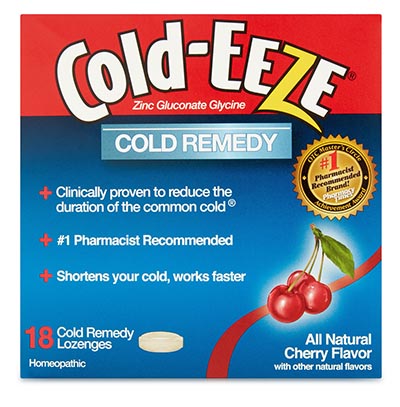
“The data on zinc is better than on any other supplement,” says the University of Wisconsin’s Bruce Barrett.
But not just any zinc. Zinc lozenges release zinc slowly, which may prevent viruses from replicating or binding to cells in the throat and nose.
In a handful of small trials, colds were one to three days shorter in adults who sucked on zinc rather than placebo lozenges every few hours throughout their colds.1 Those trials (most were funded by or had lozenges provided by zinc-supplement makers) had people take at least 75 milligrams a day of zinc acetate or zinc gluconate at the first sign of a cold. (Zinc lozenges that contain citric acid, mannitol, sorbitol, or tartaric acid don’t seem to work.)
In a larger, company-funded trial (co-authored by a company employee), on the other hand, neither zinc gluconate nor acetate cut colds short.2 It’s not clear why.
“Zinc may work for some people,” notes Barrett. “But the effect is probably modest.” And the lozenges may cause nausea or a lingering bad taste.
1JRSM Open 2017. doi:10.1177/2054270417694291.
2Clin. Infect. Dis. 5: 1202, 2000.
Vitamin C
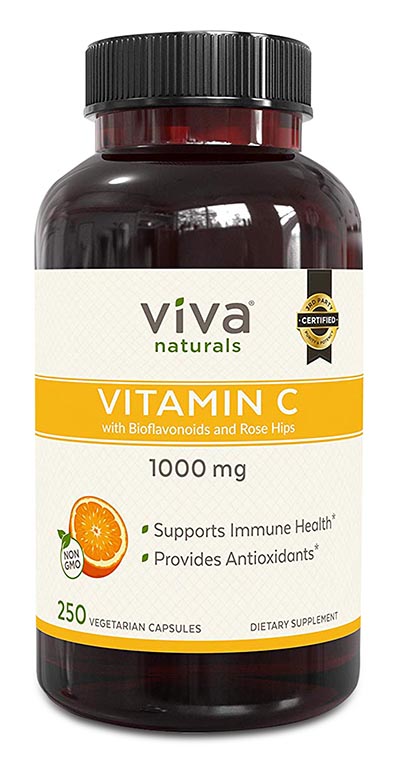
Vitamin C is king of the cold supplements. Does it work?
In seven trials that tested vitamin C’s ability to treat a cold, taking roughly 3,000 milligrams at the first sniffle didn’t make the cold shorter or less severe.1
And in 24 trials on a total of nearly 11,000 people, those who took 200 to 2,000 mg a day for an average of three months were no less likely to catch a cold than placebo takers. In those same studies, colds were 8 percent shorter in the adult C takers—about half a day for a weeklong cold.1 Hardly worth it.
But in five trials of roughly 600 people doing intense physical activity like an ultramarathon, 250 to 1,000 mg a day of vitamin C for two to eight weeks cut the risk of catching a cold in half.1
1Cochrane Database Syst. Rev. 1: CD000980, 2013.
Elderberry
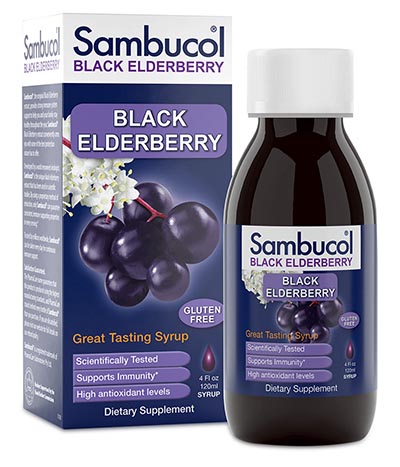
In two small, poor-quality studies, flu-like symptoms resolved faster in people taking elderberry than a placebo.1,2 (One of the studies was funded by a supplement maker. The other didn’t reveal its funding.)
Can elderberry prevent illness? In a company-funded trial, 312 adults who took 600 mg a day for 9 days leading up to airline travel and 900 mg a day for 6 to 7 days during and after travel were no less likely to catch a cold than placebo takers.3
1J. Altern. Complement. Med. 1: 361, 1995.
2J. Int. Med. Res. 32: 132, 2004.
3Nutrients 8: 182, 2016.
Probiotics
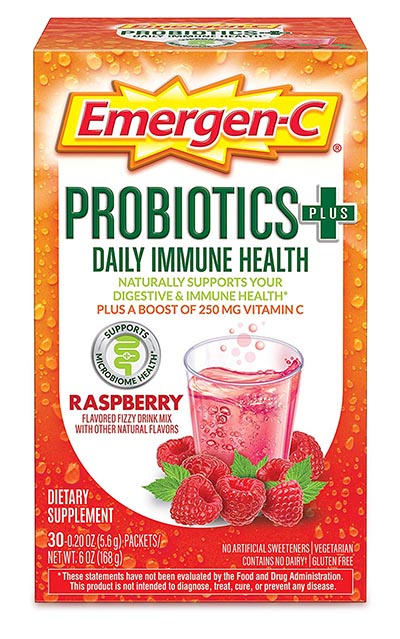
The data on probiotics is skimpy (and company funded), so the research needs to be replicated.
■ Emergen-C Probiotics+. It’s “the delicious way to fortify your immune system at your core by adding good bacteria into your gut microbiome,” claims the supplement’s website.
Only one good study in adults has been done on the probiotic’s strains: Lactobacillus rhamnosus GG and Bi-fidobacterium lactis BB-12. In 198 college students, those who took 1 billion colony-forming units (CFU) a day for 12 weeks had no fewer colds than placebo takers, but their colds were two days shorter and less severe.1
■ Metagenics UltraFlora Immune Booster. Results varied in two 12-week trials that studied Metagenics’s strains (L. plantarum HEAL9 and L. paracasei 8700:2) at a dose of 1 billion CFU a day. In 272 adults, 67 percent of placebo takers—versus 55 percent of probiotics takers—got at least one cold, but the length and severity of colds was the same in both groups.2 In another study in 310 adults, probiotics takers had no fewer colds, though their colds were less severe and one day shorter.3
■ DanActive and Yakult. According to six trials that lasted three weeks to six months, the dairy drinks are unlikely to prevent colds or flu, but they may shorten both by about a day (see Jan./Feb. 2015 and Jul./Aug. 2017).
1Br. J. Nutr. 109: 1999, 2013.
2Eur. J. Nutr. 50: 203, 2011.
3Food Nutr. Sci. 4: 13, 2013.
Don’t Bother
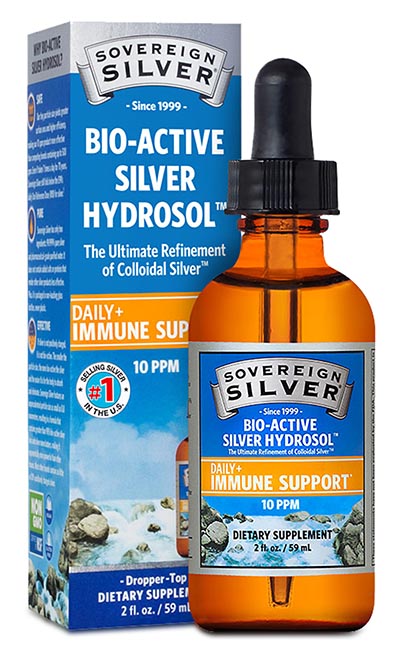
■ Colloidal silver. It’s a solution of tiny silver particles in water. In 1999, the Food and Drug Administration banned over-the-counter drugs with colloidal silver, since there was no evidence that it’s safe and effective.1 (Silver can build up in the body, sometimes causing a permanent graying of the skin known as “blue man syndrome.”2)
Yet you can still find colloidal silver in OTC supplements like Sovereign Silver. (“Immune support,” promises the label.)
Silver is sometimes used topically to treat burns or wounds. What’s the evidence that swallowing it prevents or treats infections? Zilch.
■ Oscillococcinum. Like other homeopathic treatments, it’s diluted so much that it’s unlikely to contain any of its “active” ingredient (duck liver or heart).
In two low-quality studies (one coauthored by an employee of Oscillococcinum’s manufacturer), roughly 800 people were randomly assigned to take Oscillococcinum or a placebo within the first day of having flu-like symptoms.3,4 After two days, symptoms were gone in 17 to 19 percent of Oscillococcinum takers and 10 to 15 percent of placebo takers. You have to wonder: Did those folks even have the flu?
■ Mushrooms. “Harnesses the power of ancient wisdom by creating an immune blend of 6 diverse mushrooms to support your immune system,” says Nature’s Way Immune Blend.
In one industry-funded study, eating mushrooms daily for a week increased the secretion of an immune system protein compared with a control group.5 What about colds or flu? No one has looked.
1 fda.gov/drugs/status-otc-rulemakings/rulemaking-history-otc-colloidal-silver-drug-products.
2Dermatol. Online J. 11: 12, 2005.
3Br. Homeopath. J. 87: 69, 1998.
4Br. J. Clin. Pharm. 27: 329, 1989.
5Nutrition 28: 527, 2012.
Photos: Piman Khrutmuang/stock.adobe.com (top background), Nestor/stock.adobe.com (woman), Cold-Eeze, Viva Naturals, Sambucol, Emergen-C, Sovereign Silver.

